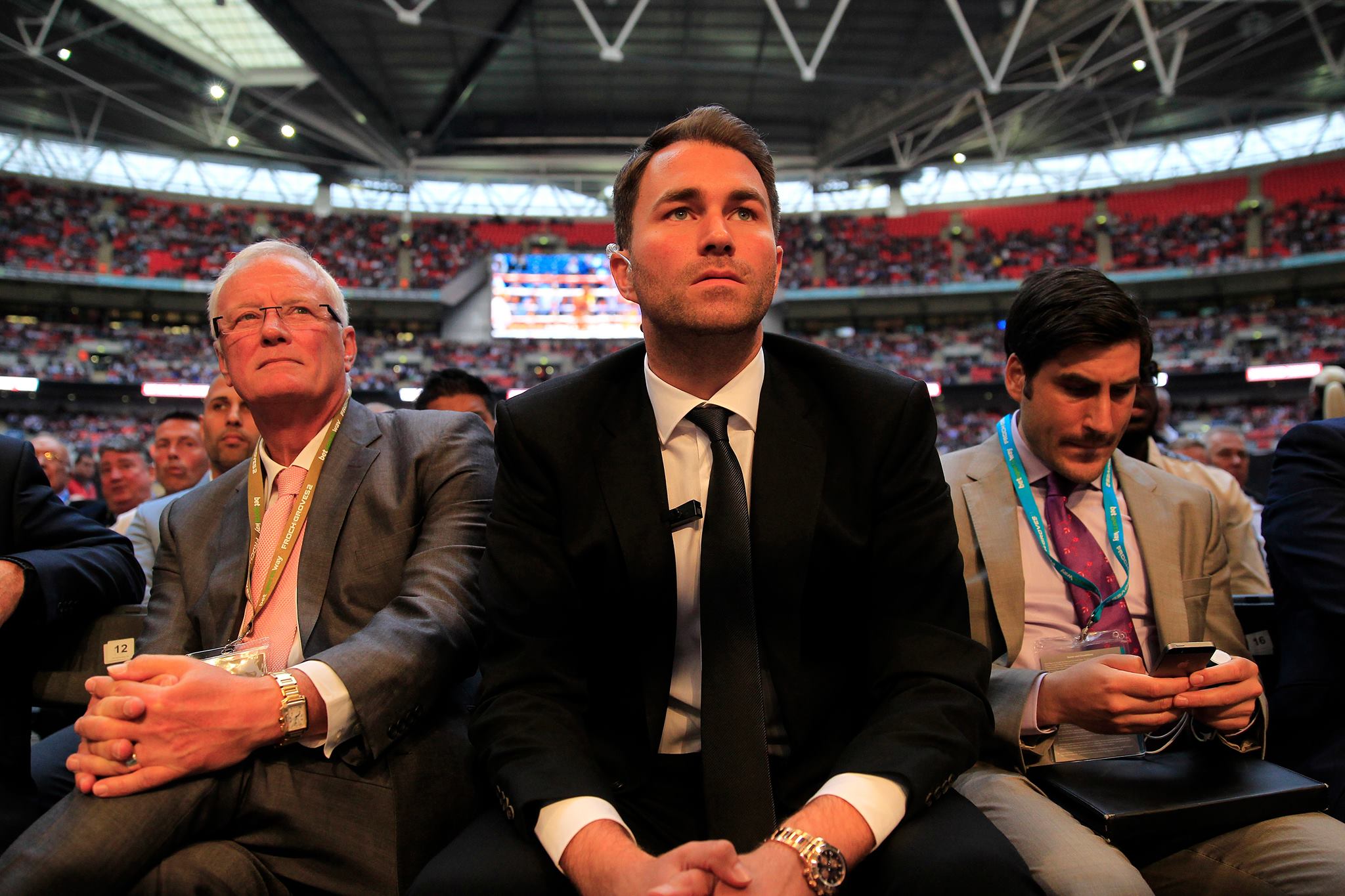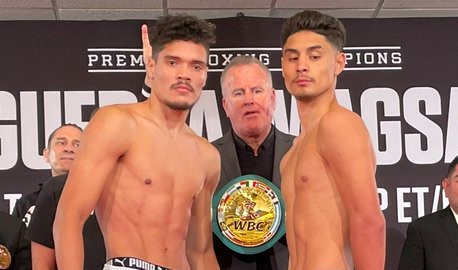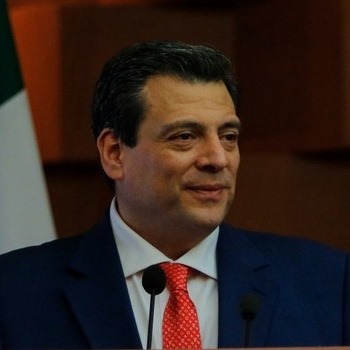By: William Holmes
“U.S.A.!! U.S.A.!! U.S.A.!!”
I can hear the chants already. The Olympics are coming, and national pride will be on full display throughout the entire Olympic Games. To some it’s an opportunity to proudly display your heritage, and celebrate its accomplishments in Olympic sport. To others it’s an obnoxious display of chauvinism, misguided national pride where fans seem to say my nationality is better than yours.
Boxing is one of the oldest and most sacred of all the Olympic sports. It’s also one of the few Olympic sports where you see national pride in full effect, even in competition outside of the Olympics.
If you’re Filipino, chances are you root for Manny Pacquiao. If you’re Puerto Rican, chances are you root for Miguel Cotto. If you’re American, chances are you root for Floyd Mayweather Jr. If you’re Mexican, chances are you root for Juan Manuel Marquez. If you’re….
You get the point.
Your cultural background or heritage often gives a strong indication towards the fighter you are most likely to root for. It’s not necessarily a bad thing, and promoters realize this.
Think about it, the fighters who are currently getting pushed the most by promoters and/or the networks tend to be fighters with backgrounds from countries other than the United States.
What’s the reason for this?
Are American fight fans not as passionate as Mexican fight fans?
Or maybe the quality of boxing in the United States is not what it used to be.
Floyd Mayweather Jr. is the only current American Boxer who can consistently sell PPV’s at a high rate. His talent is undeniable. I may cringe and take issue with some of his past statements, but I can’t deny his business acumen or his pure boxing talent. Mayweather is one of the last truly marketable American stars, and his rise to the top began in the Olympics.
However, Floyd Mayweather Jr. is 35. It wouldn’t be absurd to believe that his best days are behind him.
That thought leads to the next logical question, where’s the next great American Boxer? Or even better, who could be the next great American boxer that is currently under the age of 30? The only answer that I can currently think of is Andre Ward.
Most pundits would agree that Floyd Mayweather Jr., Manny Pacquiao, Sergio Martinez, Nonito Donaire, and Juan Manuel Marquez are on the top five pound for pound list. Now consider their nationalities and their age. What’s missing? An American under the age of 30 (I know Donaire is a Filipino-American citizen. He didn’t come to the United States until he was 13, and most in the US, perhaps wrongly, consider him Filipino before American).
In 2012 the Olympics will be staged in London, England. It’s a chance for everyone’s patriotic pride, or chauvinism, to shine. It’s also a chance for the United States to try and maintain their weakening grip on their status as one of the dominant nations in the sport of boxing.
There will be a few sports in the Olympics that I will be watching with a close eye. Boxing however, I’ll be following religiously. The United States used to dominate in boxing in the Olympics. Recently that has not been the case.
In 1952, the first Olympics after World War II that included Japan, Germany, and the USSR, saw the United States Olympic Boxing Team dominate.
The previous 1948 Olympics, also known as the Austerity Games, did not include Japan, Germany, and the USSR. Many nations were still recovering from the Second World War, and were not able to send their best athletes.
In 1952, the United States won five medals in boxing. All of them were Gold, including one won by Floyd Patterson. In 1956, the United States won three medals, two of them gold. In 1960, the United States won four medals, three of them gold, including one won by someone named Cassius Clay. In 1964, the United States won four medals, including one by heavyweight Joe Frazier. In 1968, the United States won seven medals, including George Foreman in the heavyweight division. In 1972 the US boxing team won four medals, and in 1976 seven medals, including Michael and Leon Spinks as well as Sugar Ray Leonard.
In 1980, the United States did not participate in the Olympics, but came back with a vengeance in 1984 by winning eleven medals, nine of them gold. From 1984 to 2000, the United States has always won at least four medals in Olympic boxing, including wins by such greats as Pernell Whitaker, Meldrick Taylor, Riddick Bowe, Roy Jones Jr., Oscar De La Hoya, Antonio Tarver, and Floyd Mayweather Jr.
In 2004, the US Olympic boxing team began to show signs of decline. That year, the United States only had two medal winners, Andre Ward and Andre Dirrell. In 2008, the United States only had one medal winner, Deontay Wilder, and that was a bronze.
Doing well in the Olympics is a good way for any young aspiring boxer to make his name known and advance his marketability. Unfortunately, the United States has shown a decline in its ability to succeed in boxing on the Olympic level, and with that its ability to produce young marketable stars on the professional level.
Even Andre Ward, the last US Gold Medal winner, is not yet a household name.
If we are ever going to see another Muhammad Ali, Joe Frazier, George Foreman, Pernell Whitaker, Roy Jones Jr., or even Floyd Mayweather Jr.; chances are we’ll see them compete and do well in the Olympics. When the United States has only produced three medal winners in the past eight years, the chances of another great American boxer emerging as a household name as a professional becomes marginal.
So what is the problem here? There are many competing ideas/rationalizations.
Perhaps there aren’t enough boxing gyms in the United States to train the next great American Champion.
Perhaps American athletes are chasing bigger paydays in far safer sports rather than risk their brain in a sport where only a small select few make good money.
Perhaps the American athletes that would have previously taken up boxing are now participating in Mixed Martial Arts.
Perhaps the United States hasn’t actually declined in the amount of talent it produces in boxing, but that other nations have quite simply caught up to us.
Perhaps it is because boxing is no longer on free television, reducing the general exposure it used to have with the casual sports fan and its ability to grow.
Perhaps the point system of Olympic boxing doesn’t accurately predict how a boxer will do on the professional level.
Perhaps … perhaps … perhaps….
If the United States Boxing Team doesn’t do well in the 2012 Olympics, you can’t really blame promoters for not pushing American boxers and instead focusing on their foreign investments. Realistically speaking, who else can they push?
American fans of boxing should pay close attention to the 2012 Summer Olympics. It may produce the next great American champion. It may also finally signal the end of American dominance in this sport.
I am certain of one thing; the 2012 Olympics will be a pivotal event for the future of American boxing, for better or for worse.


















